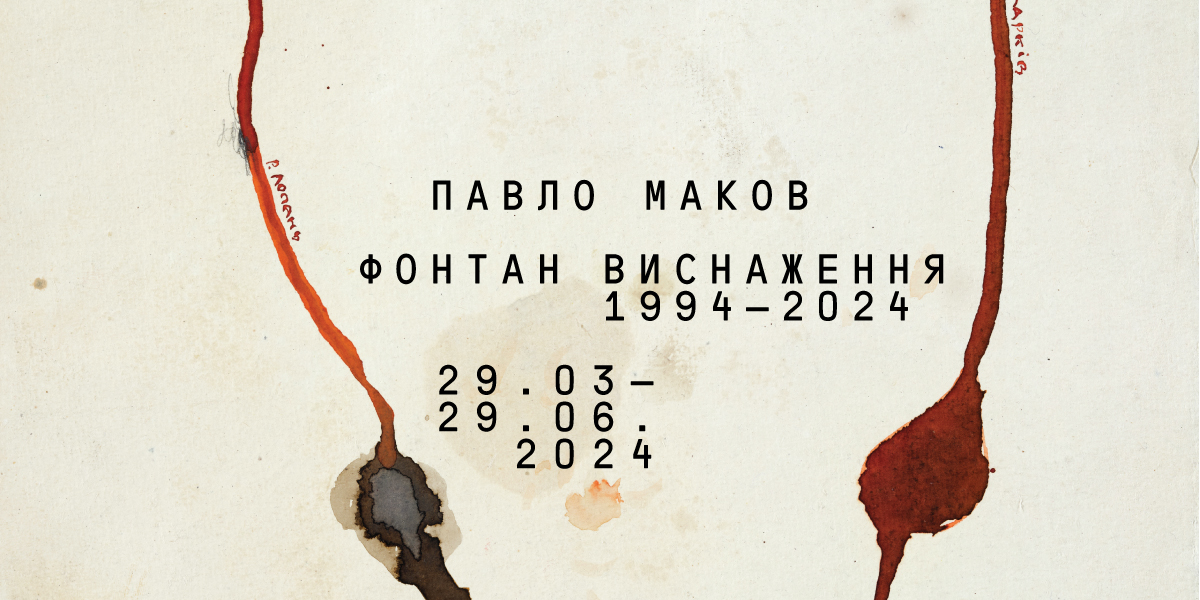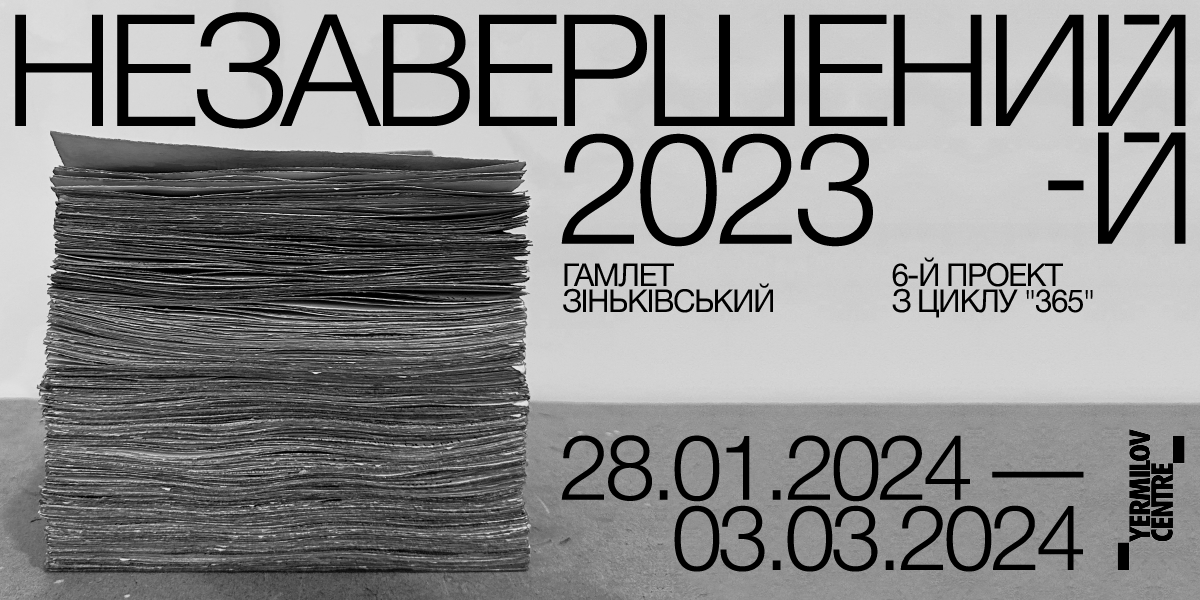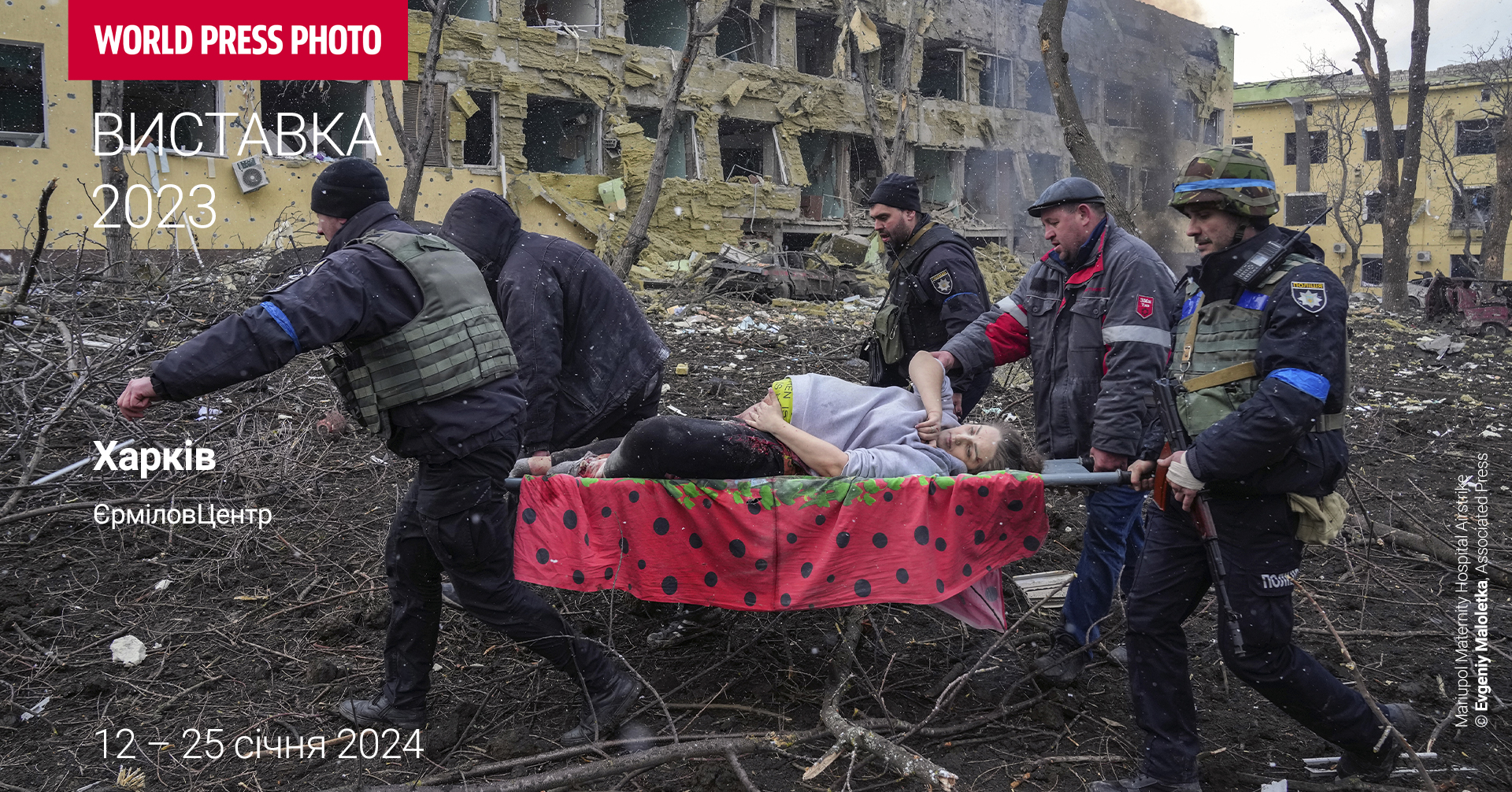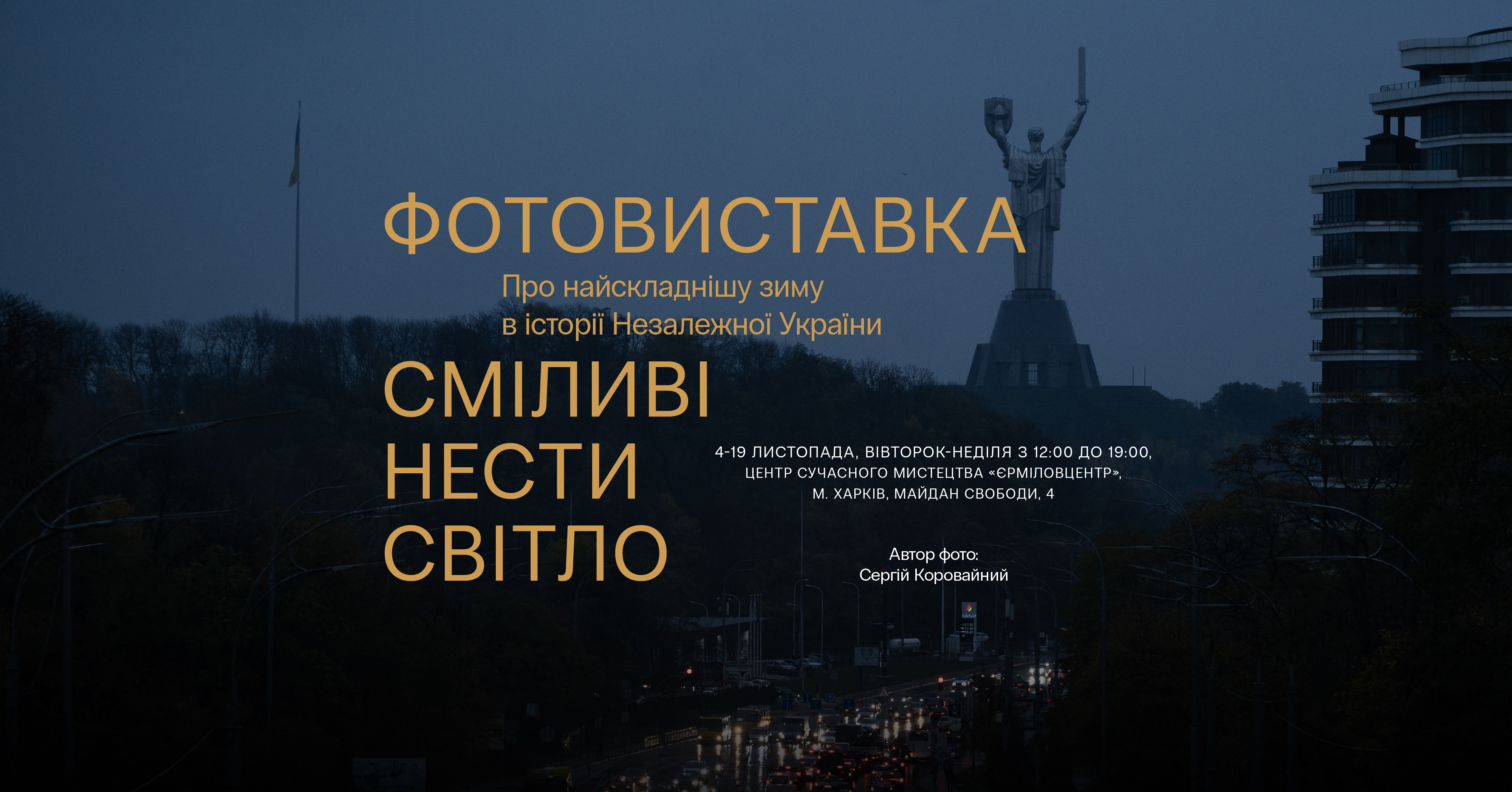Друга бієнале молодого мистецтва
09.17-10.31
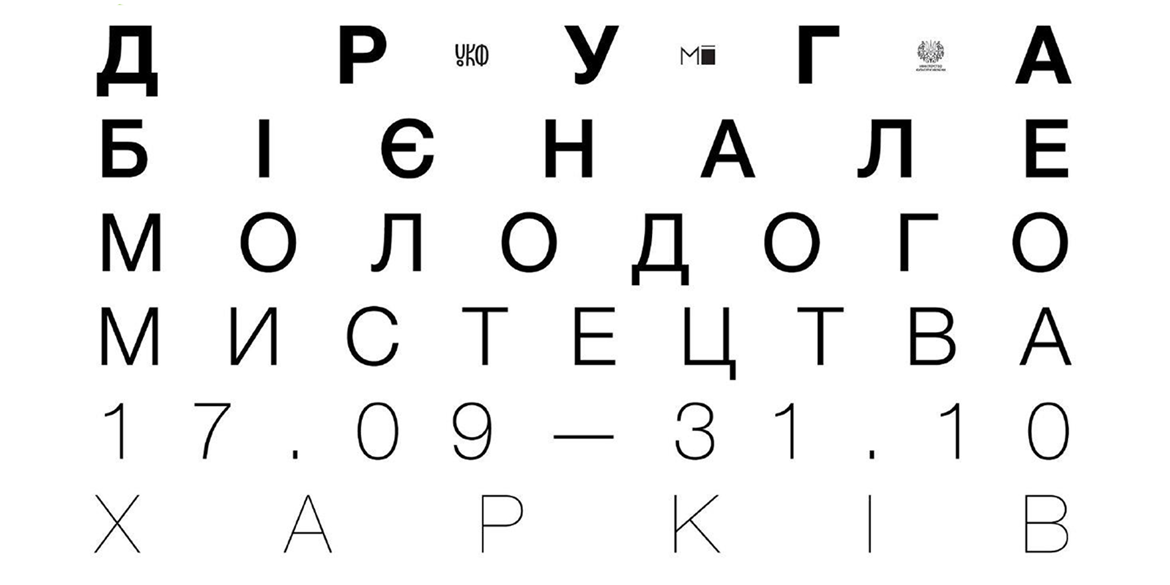
Запрошуємо 17 вересня о 18:00 на відкриття другої Бієнале молодого мистецтва, де ЄрміловЦентр — одна з локацій основної програми!
Концепція Другої бієнале молодого мистецтва:
ЗДАЄТЬСЯ, Я ЗАХОДЖУ В НАШ САД
Рішення доглядати сад було проявом впевненості у найтемніші часи. На тлі катастроф, після землетрусів і бомбардувань, під час цілковитої втрати власних прагнень у задушливому однопартійному суспільстві, або, навпаки, у невпинному потоці змін, що розмивають старі напрямки й не дають нових мап для орієнтації. Коли картина світу остаточно ламається, а дія здається неможливою, ми все ще здатні налагодити стан речей — дбати про сад. На думку Зіґмунта Баумана, саме садівник є фігурою, що відповідає на виклики сьогодення. Садівник «...уважає, що у світі взагалі не буде ладу (принаймні в маленькій частині світу, довіреній його опіці), якщо він не пильнуватиме постійно і не докладатиме зусиль». Садівник від культури, художник може закласти початки впевненості у плинні часи. Незалежно від масштабу своєї дії, не вдаючись до узагальнень, виходячи з власної практики.
Молоде мистецтво, наче божоле, може губити свої властивості. Ще до настання ранку зникати зі стін галерей, музеїв і міських провулків під тиском цензури чи-то в черговій фазі цехових баталій. Усвідомлювати свою вразливість, але прагнути висловлювання, яке може стати опорою для всієї культури. Тому Друга бієнале молодого мистецтва звертається до образу саду й метафори садівництва не тільки для представлення окремих практик сучасних художників і художниць, а й задля можливості відкрити спільний простір, в якому всі учасники зможуть побачити один одного. Зустріч, що може спричинити дискомфорт, так само уможливлює нові зв’язки. Бієнале прагне надати обрисів спільноті не в гармонізації, а в множинності форм, не уникаючи гострих кутів, а спираючись на позитивний потенціал внутрішньої напруги між ними.
Це не руїна навкруги. Здається, я заходжу в наш сад.
Автори концепції та куратори бієнале – Анастасія Євсєєва, Дарина Скринник-Міська, Борис Філоненко.
В основній програмі Бієнале молодого мистецтва 2019 представлені 44 художніх проектів, які відповідають заявленій кураторами концепції «Здається, я заходжу в наш сад».
Митці та проекти у "ЄрміловЦентрі":
Костянтин Зоркін «Врємиши», Сергій Торбінов «Inversion», Ларіон Лозовий «Машина і сад», В’ячеслав Поляков і Олена Субач «Місто садів», Юрій Болса «Антиромантика», Тереза Барабаш «Межа», Богдан Локатир і Маргарита Журунова «Повернення», Юрій Денисенков «Тло», Катерина Лесів «Колискова», Ольга Кузюра «Моя гра», Володимир Гавриш і Андрій Беницький «Блайндмен», Андрій Рачинський і Даніїл Ревковський «Темрява», Катя Бучацька «Вчора цього не було».
Час роботи виставки: 12:00-20:00, понеділок – вихідний.
Вхід вільний!
Повна програма бієнале на сайті: http://biennale.org.ua/
17.09 - 31.10

Запрошуємо 17 вересня о 18:00 на відкриття другої Бієнале молодого мистецтва, де ЄрміловЦентр — одна з локацій основної програми!
Концепція Другої бієнале молодого мистецтва:
ЗДАЄТЬСЯ, Я ЗАХОДЖУ В НАШ САД
Рішення доглядати сад було проявом впевненості у найтемніші часи. На тлі катастроф, після землетрусів і бомбардувань, під час цілковитої втрати власних прагнень у задушливому однопартійному суспільстві, або, навпаки, у невпинному потоці змін, що розмивають старі напрямки й не дають нових мап для орієнтації. Коли картина світу остаточно ламається, а дія здається неможливою, ми все ще здатні налагодити стан речей — дбати про сад. На думку Зіґмунта Баумана, саме садівник є фігурою, що відповідає на виклики сьогодення. Садівник «...уважає, що у світі взагалі не буде ладу (принаймні в маленькій частині світу, довіреній його опіці), якщо він не пильнуватиме постійно і не докладатиме зусиль». Садівник від культури, художник може закласти початки впевненості у плинні часи. Незалежно від масштабу своєї дії, не вдаючись до узагальнень, виходячи з власної практики.
Молоде мистецтво, наче божоле, може губити свої властивості. Ще до настання ранку зникати зі стін галерей, музеїв і міських провулків під тиском цензури чи-то в черговій фазі цехових баталій. Усвідомлювати свою вразливість, але прагнути висловлювання, яке може стати опорою для всієї культури. Тому Друга бієнале молодого мистецтва звертається до образу саду й метафори садівництва не тільки для представлення окремих практик сучасних художників і художниць, а й задля можливості відкрити спільний простір, в якому всі учасники зможуть побачити один одного. Зустріч, що може спричинити дискомфорт, так само уможливлює нові зв’язки. Бієнале прагне надати обрисів спільноті не в гармонізації, а в множинності форм, не уникаючи гострих кутів, а спираючись на позитивний потенціал внутрішньої напруги між ними.
Це не руїна навкруги. Здається, я заходжу в наш сад.
Автори концепції та куратори бієнале – Анастасія Євсєєва, Дарина Скринник-Міська, Борис Філоненко.
В основній програмі Бієнале молодого мистецтва 2019 представлені 44 художніх проектів, які відповідають заявленій кураторами концепції «Здається, я заходжу в наш сад».
Митці та проекти у "ЄрміловЦентрі":
Костянтин Зоркін «Врємиши», Сергій Торбінов «Inversion», Ларіон Лозовий «Машина і сад», В’ячеслав Поляков і Олена Субач «Місто садів», Юрій Болса «Антиромантика», Тереза Барабаш «Межа», Богдан Локатир і Маргарита Журунова «Повернення», Юрій Денисенков «Тло», Катерина Лесів «Колискова», Ольга Кузюра «Моя гра», Володимир Гавриш і Андрій Беницький «Блайндмен», Андрій Рачинський і Даніїл Ревковський «Темрява», Катя Бучацька «Вчора цього не було».
Час роботи виставки: 12:00-20:00, понеділок – вихідний.
Вхід вільний!
Повна програма бієнале на сайті: http://biennale.org.ua/
17.09 - 31.10

Запрошуємо 17 вересня о 18:00 на відкриття другої Бієнале молодого мистецтва, де ЄрміловЦентр — одна з локацій основної програми!
Концепція Другої бієнале молодого мистецтва:
ЗДАЄТЬСЯ, Я ЗАХОДЖУ В НАШ САД
Рішення доглядати сад було проявом впевненості у найтемніші часи. На тлі катастроф, після землетрусів і бомбардувань, під час цілковитої втрати власних прагнень у задушливому однопартійному суспільстві, або, навпаки, у невпинному потоці змін, що розмивають старі напрямки й не дають нових мап для орієнтації. Коли картина світу остаточно ламається, а дія здається неможливою, ми все ще здатні налагодити стан речей — дбати про сад. На думку Зіґмунта Баумана, саме садівник є фігурою, що відповідає на виклики сьогодення. Садівник «...уважає, що у світі взагалі не буде ладу (принаймні в маленькій частині світу, довіреній його опіці), якщо він не пильнуватиме постійно і не докладатиме зусиль». Садівник від культури, художник може закласти початки впевненості у плинні часи. Незалежно від масштабу своєї дії, не вдаючись до узагальнень, виходячи з власної практики.
Молоде мистецтво, наче божоле, може губити свої властивості. Ще до настання ранку зникати зі стін галерей, музеїв і міських провулків під тиском цензури чи-то в черговій фазі цехових баталій. Усвідомлювати свою вразливість, але прагнути висловлювання, яке може стати опорою для всієї культури. Тому Друга бієнале молодого мистецтва звертається до образу саду й метафори садівництва не тільки для представлення окремих практик сучасних художників і художниць, а й задля можливості відкрити спільний простір, в якому всі учасники зможуть побачити один одного. Зустріч, що може спричинити дискомфорт, так само уможливлює нові зв’язки. Бієнале прагне надати обрисів спільноті не в гармонізації, а в множинності форм, не уникаючи гострих кутів, а спираючись на позитивний потенціал внутрішньої напруги між ними.
Це не руїна навкруги. Здається, я заходжу в наш сад.
Автори концепції та куратори бієнале – Анастасія Євсєєва, Дарина Скринник-Міська, Борис Філоненко.
В основній програмі Бієнале молодого мистецтва 2019 представлені 44 художніх проектів, які відповідають заявленій кураторами концепції «Здається, я заходжу в наш сад».
Митці та проекти у "ЄрміловЦентрі":
Костянтин Зоркін «Врємиши», Сергій Торбінов «Inversion», Ларіон Лозовий «Машина і сад», В’ячеслав Поляков і Олена Субач «Місто садів», Юрій Болса «Антиромантика», Тереза Барабаш «Межа», Богдан Локатир і Маргарита Журунова «Повернення», Юрій Денисенков «Тло», Катерина Лесів «Колискова», Ольга Кузюра «Моя гра», Володимир Гавриш і Андрій Беницький «Блайндмен», Андрій Рачинський і Даніїл Ревковський «Темрява», Катя Бучацька «Вчора цього не було».
Час роботи виставки: 12:00-20:00, понеділок – вихідний.
Вхід вільний!
Повна програма бієнале на сайті: http://biennale.org.ua/







































Поточні події
29.03.24 – 29.06.24
Виставкa
28.01.24 – 03.03.24
Виставкa
12.01.24 – 25.01.24
Виставкa
04.11.23 – 19.11.23
Виставкa
Поточні події

Поточні події
